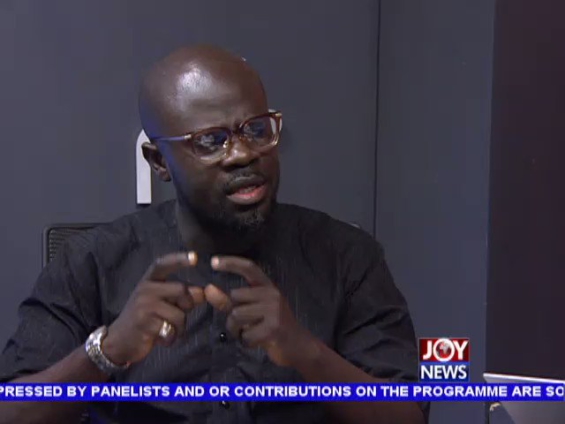The Dean of the Faculty of Law at the University of Professional Studies, Accra (UPSA), Professor Ernest Kofi Abotsi, has raised concerns about the presidential pardon process, describing it as controversial and outdated.
According to him, presidents should not have the power to overturn judicial decisions by pardoning convicted individuals, as it undermines the integrity of the judicial system.
Speaking on JoyNews on Saturday, January 11, Prof. Abotsi argued that the origins of the pardon process are rooted in monarchies, where kings and queens held ultimate judicial authority. He contended that Ghana’s adoption of this practice under the current constitutional framework lacks historical justification.
"The issue about presidential pardon generally is one that I find, you know, controversial. I have never really accepted that aspect of our Constitution. I think that presidents should have no business pardoning people, when people are jailed or convicted in accordance with the judicial process, that should terminate it. And I do not think that presidents sitting in a political position should narrowly be given that power," he said.
His comments follow the outgone President, Nana Akufo-Addo, who has granted a presidential pardon to William Ato Essien and 10 other convicted individuals.
Prof. Abotsi acknowledged the difficulty of addressing certain cases, such as the pardon of William Ato Essien, the convicted banker linked to the financial sector crisis. He noted that the ongoing banking crisis makes such decisions hard for the public to accept.
“While humanitarian considerations, such as medical conditions, can justify pardons, it’s crucial to balance these factors with public sentiment and the broader implications for justice,” he said.
“Presidential pardons make no sense in a modern judicial system. They undermine the judiciary and should be reconsidered,” he added.
Prof Abotsi also criticised the politicised nature of the process, noting that many decisions are influenced by political connections and considerations rather than objective or humanitarian factors.
“We’ve seen presidents pardon individuals who ought not to be pardoned, leading to controversies and criticisms. This stems from inadequate consultation and support during the decision-making process,” he added.
Prof. Abotsi further highlighted systemic issues within Ghana’s prison system, which he believes require more urgent attention than the politically motivated pardoning of a few individuals.
He cited examples of prisoners on remand for over five years, some of whom have spent more time in prison than the maximum penalty for their alleged crimes.
“There are individuals in prison who were convicted improperly, with subsequent evidence proving their innocence. There are also prisoners suffering from debilitating health conditions who deserve humanitarian consideration. These cases often go unnoticed while politically connected individuals benefit from pardons,” he lamented.
Prof. Abotsi called for a broader, more transparent, and research-driven approach to the pardon process. He argued that the process must be depoliticised and grounded in empirical evidence to ensure fairness and accountability.
Latest Stories
-
CFAO partners with Lovol to power Ghana’s heavy equipment market
52 seconds -
‘I don’t know what you call rich’ – Bryan Acheampong on support for Wontumi’s GH¢50m bail
10 minutes -
Dr. Who? Ghana’s Epidemic of Degrees without Diagnosis: Satirical Musings on Ghana’s Curious Obsession with Titles
13 minutes -
Glaucoma Laser treatment launched at St. Thomas Eye Hospital
25 minutes -
Hindsight: What does the law say about Nations FC’s walk-off?
27 minutes -
Mahama outlines the bold vision behind establishment of the GoldBod
32 minutes -
Highway robbers make off with over 1.7 million CFA, jewellery, and phones at Gomoa Potsin
33 minutes -
Put Ghana first: Asantehene tells Mahama appointees during courtesy call
38 minutes -
Why Otto Addo should maintain these players in the Black Stars going forward
41 minutes -
Ghana Voice Actors Community officially launched in Accra
57 minutes -
Dr Sodzi Sodzi-Tettey honoured with Doctor of Science Degree by UHAS for contributions to health and leadership
59 minutes -
UHAS-Nkabom Project: A $9.8m vision to transform public health, tackle unemployment, and end malnutrition
1 hour -
TGS brings health and financial hope to Ngalekyi fishing community
2 hours -
Prof Zottor urges journalists to lead public nutrition awareness in Volta and Oti regions
2 hours -
Karpowership champions reliable, inclusive power solutions for industrial growth
2 hours

